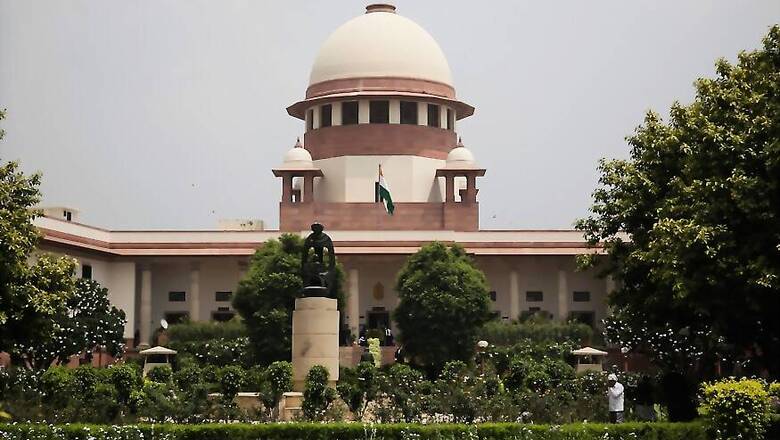
views
By allowing euthanasia and, at the same time, spelling out strict guidelines on how it is permissible, the Supreme Court of India has walked a step further in recognizing the exact interpretation of ‘right to live with human dignity’ mentioned in Article 21 of the Indian Constitution.
We have already considered and accepted that mere animal existence is not ‘right to life’ executed in real form. We also have tried to understand through various Supreme Court Judgments that when Constitution mentions ‘right to live’ as fundamental right, ‘living with human dignity’ which is expected as an integral part of this right is important part of exact interpretation.
In Aruna Ramchandra Shanbagh Vs Union of India case, validity of passive euthanasia was upheld by the Supreme Court. But there is no elaborative procedure for execution laid down, as the Supreme Court was under influence of the Gain Kaur Vs State of Punjab case, in which it is held that “right to live with dignity under Article 21 were inclusive of right to die with dignity”.
Both of these decisions did not arrive at any conclusion on the validity of euthanasia be it active or passive. But this time it seems that the Supreme Court has taken really a bold step while delivering this landmark judgment recognizing and sanctioning to passive euthanasia and ‘living will’.
‘Living will’ will prove as an important document which a person, with deteriorating health or terminally ill, can execute in advance. By living will, such a person can choose not to remain in a vegetation state with a life support system. If that person comes into that state, and when it will be not possible for him to express his wishes in spoken words, the document of living will would then be presented to hospital authorities for appropriate action.
The guidelines given by the Supreme Court also clearly mention that living will shall be executed giving respect to the opinion expressed by the patient and collective decision shall be taken by the relatives of the patient along with medical professional.
Permitting an individual to draft a ‘living will’ specifying that they not be put on life support if they slip into an incurable coma situation in future, and thereby recognizing a patient’s right to deny remaining alive on ventilator or an artificial system, is definitely a decision which makes us eligible to live in progressive society.
India has already permitted individual to donate specific organs and there is specific laws and rules relating to organs donation but, till today, we have shown a complete failure in understanding that when our Constitution recognizes every individual’s rights over his/her own body, then compelling some person into vegetation state to live on life support was cruel. The recent Supreme Court Judgment now completes circle of granting right of every individual over his/her own body in wholesome manner.
Involving the medical board to determine whether a patient is in vegetation state would revive or not is an important part of directions given by the Supreme Court and the relatives of a patient who has not written a living can approach high courts asking for passive euthanasia. So, in near future, we can see various high courts dealing with writ petitions, under Article 226 of Indian Constitution, seeking permission for passive euthanasia.
Till there is no law enacted by the Parliament, the Supreme Court’s guidelines will remain in force as the Central Government has already taken steps by drafting a bill governing passive euthanasia and ‘Living Power of Attorney’.
Many people object to any step towards making living wills or granting permissions for passive euthanasia, expressing fear that it will be misused. It is a fact that there is no law, rule, regulation or provision of law which has never been misused. But if only on the basis of some negativity and fear, we stopped making laws, then social progress will stop. Living life is very positive concept and every human being is eager to live life at fullest so this fear of misuse is not true and, hence, we must welcome the judgment given by the Supreme Court.
Asim Sarode is a practicing lawyer and human right analyst who has worked for 10 years on Living will and dying with dignity issues.




















Comments
0 comment